Palace Installation Guide#
Installation of Palace on HPC systems#
Follow instructions to install Palace on Linux/HPC systems from the official palace site: https://awslabs.github.io/palace/stable/install/
sqdlab/SQDMetal is also a good resource for installation on HPC systems.
Installation of Palace on Mac OS#
Installing Palace on macOS involves using Homebrew to manage dependencies and compiling the software using CMake.
Follow these steps to ensure a smooth installation process. It was tested to work on macOS Darwin 22.3.0 (Apple M1 Pro chip).
Prerequisites#
Homebrew: A package manager for macOS. If not installed, run:
/bin/bash -c "$(curl -fsSL https://raw.githubusercontent.com/Homebrew/install/HEAD/install.sh)"
Xcode Command Line Tools: Required for development tools. Install by running:
xcode-select --install
Installation Steps#
Update Homebrew:
brew updateInstall Dependencies:
Install necessary packages using Homebrew:
brew install cmake gcc open-mpi openblas git
cmake: For configuring the build process.
gcc: Provides the Fortran compiler gfortran.
open-mpi: MPI distribution for parallel computations.
openblas: Provides BLAS and LAPACK libraries.
git: For cloning the Palace repository.
Set Environment Variables:
Ensure CMake can find OpenBLAS:
export CMAKE_PREFIX_PATH=$(brew --prefix openblas)
Clone the Palace Repository:
git clone https://github.com/awslabs/palace.git cd palace
Create a Build Directory:
mkdir build && cd build
Configure the Build with CMake:
Run CMake with appropriate compilers and options:
cmake -DCMAKE_C_COMPILER=clang \ -DCMAKE_CXX_COMPILER=clang++ \ -DCMAKE_Fortran_COMPILER=$(brew --prefix gcc)/bin/gfortran \ -DCMAKE_PREFIX_PATH=$CMAKE_PREFIX_PATH \ ..
CMAKE_C_COMPILER and CMAKE_CXX_COMPILER: Use default Clang compilers.
CMAKE_Fortran_COMPILER: Use gfortran from Homebrew GCC.
CMAKE_PREFIX_PATH: Helps CMake locate OpenBLAS.
Build Palace:
Compile the software using:
make -j $(sysctl -n hw.ncpu)
This utilizes all available CPU cores for faster compilation.
Verify the Installation:
After building, the Palace executable is in the bin/ directory:
ls bin/You should see an executable named palace.
Run an Example:
Test the installation by running an example:
cd ../examples/cpw ../../build/bin/palace cpw_wave_uniform.json
This runs the cpw_wave_uniform example using the Palace executable.
Optional Steps#
Install Palace System-wide:
To install Palace to a specific directory (e.g., /usr/local), reconfigure with CMAKE_INSTALL_PREFIX:
cmake -DCMAKE_INSTALL_PREFIX=/usr/local \ -DCMAKE_C_COMPILER=clang \ -DCMAKE_CXX_COMPILER=clang++ \ -DCMAKE_Fortran_COMPILER=$(brew --prefix gcc)/bin/gfortran \ -DCMAKE_PREFIX_PATH=$CMAKE_PREFIX_PATH \ .. make -j $(sysctl -n hw.ncpu) sudo make install
This installs the Palace executable to /usr/local/bin.
Notes#
Fortran Compiler: gfortran is required for building some dependencies and is provided by Homebrew GCC.
MPI Support: OpenMPI provides the necessary MPI support for parallel computations.
BLAS and LAPACK: OpenBLAS supplies these libraries, essential for numerical computations.
Xcode Command Line Tools: Needed for Clang compilers and development tools.
Troubleshooting#
CMake Cannot Find OpenBLAS:
Ensure CMAKE_PREFIX_PATH is set correctly:
export CMAKE_PREFIX_PATH=$(brew --prefix openblas)
MPI Errors:
Confirm that OpenMPI is properly installed and in your PATH.
Installation of Palace on Linux PCs#
Installing Palace on Linux PCs can be somewhat challenging due to its reliance on high-performance libraries that depend on specific CPU instruction sets. The version of OpenMPI included in Ubuntu’s standard repositories is not compatible with Palace, necessitating the use of Spack to install a compatible version of OpenMPI.
These scripts were tested on a fresh Ubuntu 22.04 installation as of 11/22/2023.
Installation Steps#
Run the following script to install the required dependencies:
#!/bin/bash
# Update and upgrade packages
sudo apt-get update
sudo apt-get upgrade
# Install utilities
sudo apt-get install gmsh paraview
# Install Spack prerequisites
sudo apt-get install build-essential ca-certificates coreutils curl environment-modules gfortran git gpg lsb-release python3 python3-distutils python3-venv unzip zip
# Install Palace prerequisites
sudo apt-get install pkg-config build-essential cmake python3 mpi-default-dev
Run the following script to install Spack, set up MPI, and build Palace:
#!/bin/bash
# This script will:
# 1. Install Spack in the current directory
# 2. Install MPI via Spack
# 3. Set the system MPI to Spack's MPI
# 4. Clone the Palace repository
# 5. Build Palace
spack_repo="https://github.com/spack/spack.git"
palace_repo="https://github.com/awslabs/palace.git"
# Install Spack
echo 'Installing Spack to:'
echo $spack_install_dir
git clone -c feature.manyFiles=true $spack_repo
. spack/share/spack/setup-env.sh
# Install MPI
echo 'Installing MPI'
spack install mpi
mpi_info=($(spack find -p mpi))
mpi_dir=${mpi_info[-1]}
mpi_bin_dir="$mpi_dir/bin"
# Set up paths
echo 'MPI bin directory:'
echo $mpi_bin_dir
echo -n 'export PATH="' > setup_palace_env.sh
echo -n $mpi_bin_dir >> setup_palace_env.sh
echo ':$PATH"' >> setup_palace_env.sh
source setup_palace_env.sh
# Install Palace
echo 'Installing Palace to:'
echo $palace_install_dir
git clone --recurse-submodules $palace_repo
cd palace
mkdir build
cd build
cmake ..
make -j
After running these scripts, you should be able to launch Palace by running:
$ palace
If no errors are encountered, your installation is likely successful.
Installation of Palace on Windows Systems#
Using a Prebuilt Executable (Recommended)#
If you want to avoid the complex compilation process, you can use a prebuilt Palace executable provided by WELSIM. The WELSIM company has built and open-sourced Palace v1.11.0 as part of their simulation software suite.
Download the installer from the official GitHub release:
Full release page: WelSimLLC/WelSim-Apps
Run
WelSim31Setup.exeand follow the installation instructions.Once installed, the
palace.exebinary will be located in the installation directory, e.g.:C:\Program Files\WELSIM\v3.1\palace.exe
Note: This version is Palace v1.11.0, which is older than the current upstream version, but it should be sufficient for most simulations.
Building Palace on Windows (Not Recommended for Beginners)#
The installation process involves:
Installing necessary compilers and tools
Manually downloading and building each dependency
Setting up a Visual Studio solution with two projects
Linking everything and building
Step 1: Install Tools and Compilers#
Visual Studio 2022#
Download Visual Studio 2022 Community from: https://visualstudio.microsoft.com/vs/community/
During installation, ensure the following components are selected: - Desktop development with C++ - MSVC v14.x - C++ CMake tools - Windows SDK
Intel oneAPI Base & HPC Toolkit#
Download from: https://www.intel.com/content/www/us/en/developer/tools/oneapi/base-toolkit-download.html
Select both Base Toolkit and HPC Toolkit.
After installation, run:
"C:\Program Files (x86)\Intel\oneAPI\setvars.bat"
Step 2: Build Dependencies#
METIS 5.1.0#
Download from: CIBC-Internal/metis-4.0.3
Build:
mkdir build && cd build cmake .. -G "Visual Studio 17 2022" -A x64 cmake --build . --config Release
Output:
libmetis.lib, headers ininclude/
HYPRE 2.25.0#
Download from: hypre-space/hypre
Build:
mkdir build && cd build cmake .. -G "Visual Studio 17 2022" -A x64 -DHYPRE_WITH_MPI=OFF cmake --build . --config Release
Output:
libHYPRE.lib, headers insrc/
libCEED#
Clone the repository:
git clone https://github.com/CEED/libCEED cd libCEED mkdir build && cd build cmake .. -G "Visual Studio 17 2022" -A x64 cmake --build . --config Release
SuperLU_DIST#
Clone the repository:
git clone https://github.com/xiaoyeli/superlu_dist cd superlu_dist mkdir build && cd build cmake .. -G "Visual Studio 17 2022" -A x64 -DTPL_BLAS_LIBRARIES="path_to_mkl.lib" cmake --build . --config Release
STRUMPACK#
Clone the repository:
git clone https://github.com/pghysels/STRUMPACK cd STRUMPACK mkdir build && cd build cmake .. -G "Visual Studio 17 2022" -A x64 cmake --build . --config Release
MUMPS#
Building MUMPS on Windows is challenging. If needed, follow the guide at: scivision/mumps-builder
SLEPc and PETSc#
These are difficult to build on Windows.
Consider using Windows Subsystem for Linux (WSL) or prebuilt binaries.
Alternatively, remove
PALACE_WITH_ARPACKto skip SLEPc.
Header-only Libraries#
Download and extract: - nlohmann/json - fmtlib/fmt - libeigen/eigen
Step 3: Set Up Visual Studio Projects#
Create a new Empty Solution called
PalaceVSAdd two projects: -
libpalace: Static library -palace: Console ApplicationClone Palace repository: awslabs/palace
Add files: - Put
src/andfem/intolibpalace- Putmain.cppintopalace
Step 4: Configure Build Settings#
For both projects:
Configuration → C++ → General → Additional Include Directories: - Add paths to headers from METIS, HYPRE, libCEED, etc. - Add paths to header-only libraries
Linker → Input → Additional Dependencies: - Add:
metis.lib;hypre.lib;ceed.lib;superlu.lib;...Preprocessor Definitions (for libpalace): -
CEED_SKIP_VISIBILITY-PALACE_WITH_ARPACK-_CRT_SECURE_NO_WARNINGS
Step 5: Build and Run#
Build
libpalace(Release x64)Build
palaceCopy required
.dllfiles into the output folderRun
palace.exefrom command line
Note: You may need to install the Visual C++ Redistributable package from:
C:\Program Files\Microsoft Visual Studio\{Year}\{Edition}\VC\Redist\MSVC\v{version}\vc_redist.x64.exe
to run the final palace.exe binary.

